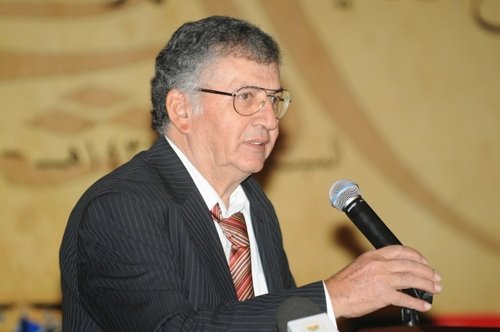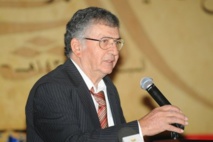He was best known for his nationalist poetry in which he passionately defended the rights and identity of Israel's Arab minority.
Known as a "resistance poet," Qasim's poems were widely embraced across the Arab world as a symbol of steadfastness in the struggle against foreign occupation, with many translated into English and other languages.
"I have no love for you, death, nor do I fear you. But you are making a bed of a body and a blanket of my soul," he wrote last week as he was dying.
He was a contemporary of the late Mahmud Darwish, who was also born in a village in what later became northern Israel, and was widely considered one of the Arab world's greatest poets.
A long-time member of the Israeli communist party and resident of the northern village of Rameh near Safed, Qasim was arrested many times for his political beliefs.
He also worked as a journalist and was editor-in-chief of the Arab Israeli weekly, Kul al-Arab.
------------------------------------------------------------------------------------------------------------
Known as a "resistance poet," Qasim's poems were widely embraced across the Arab world as a symbol of steadfastness in the struggle against foreign occupation, with many translated into English and other languages.
"I have no love for you, death, nor do I fear you. But you are making a bed of a body and a blanket of my soul," he wrote last week as he was dying.
He was a contemporary of the late Mahmud Darwish, who was also born in a village in what later became northern Israel, and was widely considered one of the Arab world's greatest poets.
A long-time member of the Israeli communist party and resident of the northern village of Rameh near Safed, Qasim was arrested many times for his political beliefs.
He also worked as a journalist and was editor-in-chief of the Arab Israeli weekly, Kul al-Arab.
------------------------------------------------------------------------------------------------------------









 Home
Home Politics
Politics











